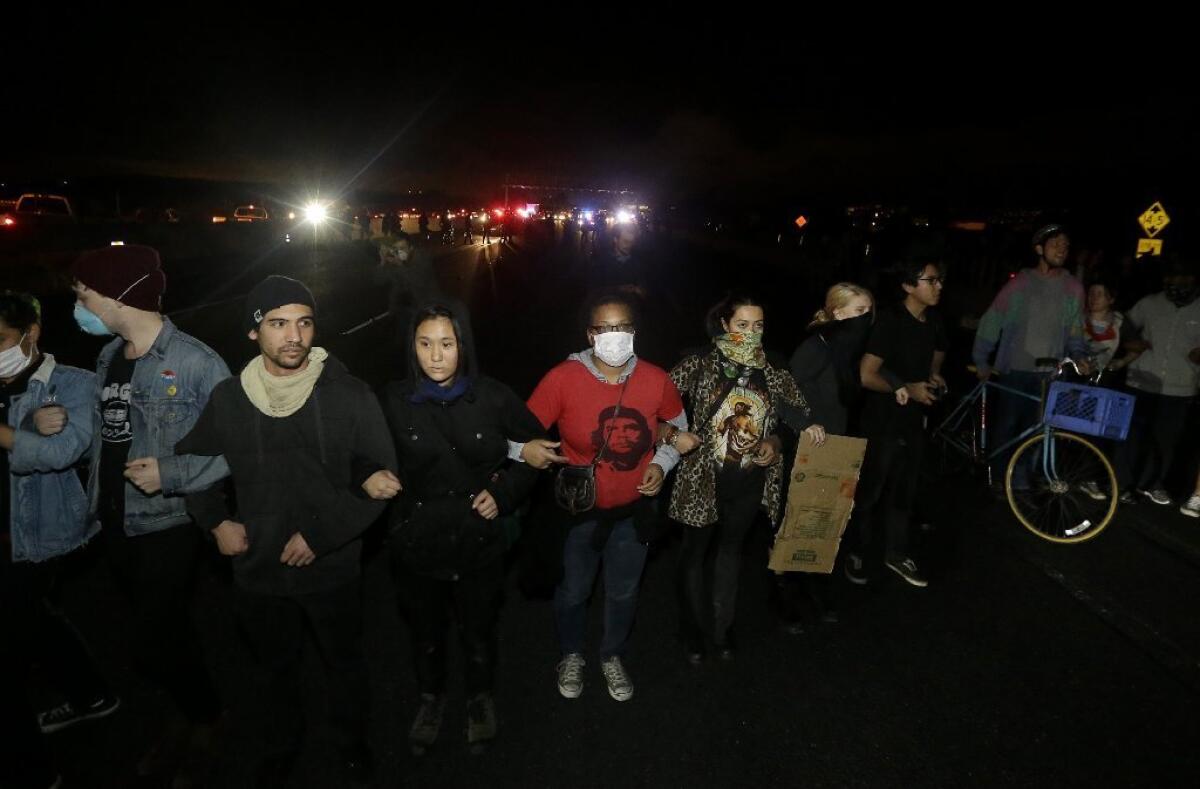Opinion: College protests for ‘Black Lives Matter’ aren’t a valid reason for finals extensions

- Share via
Some of the college and graduate students who participated in the “Black Lives Matter” protests happen to study at schools that were preparing for finals. And in a few cases, they asked the administration and professors for leniency of various kinds -- with extended deadlines, or, in the case of Oberlin College students in Ohio, with a truly obnoxious petition that included this: Flunking should be prohibited for the entire semester. The lowest grade would be a C and all Oberlin students would be, as they say, above average. Or maybe instead of writing an actual assigned paper, they could meet with a professor to talk about their ideas for a paper.
Fortunately for them and for academia in general, they haven’t gotten much in the way of schools rushing to do their bidding, according to a report by the publication Inside Higher Ed. Columbia Law School encouraged professors to be flexible in some cases. Harvard Law gave a more measured response, saying it has always given professors the authority to make decisions on this matter.
Oberlin wisely rejected the petition, though it will not keep professors from making individual decisions on what to require of students -- freedom that professors almost always have. The administration clearly knew it would be an academic laughingstock if it went along with the petition, especially after the mocking the school endured when it jumped in feet first to call on professors to provide “trigger warnings.” Professors would have had to warn students at the beginning of the semester about any material that might traumatize them in class, such as a lesson on war, or a novel that addressed racism, or … well, the list was fairly endless. And then giving those students a pass on the class involved. The idea would have been laughable, if it weren’t also a flagrant violation of professors’ academic freedom. Oberlin then yanked the proposal off its website and decided to reconsider it.
These are all indications of a trend that should worry not just professors but parents and society at large -- the idea that college students are tender souls who must be bubble-wrapped against the knocks and consequences of academic life.
The matter at hand should be to discover the true nature of action inspired by idealism. Nonviolent protests are a time-honored way for idealists to make their feelings and demands known. Good for the college students who do so. They have often led the nation to at least begin the process of rethinking established norms that might need to be disestablished.
But true idealism in the arena of protest doesn’t mean getting an extra vacation day to protest. It means that the ideal involved means more to the protesters than what otherwise would have happened that day -- work, or classes, or studying for finals. That entails a cost. Either the student protests and burns some overnight oil to prepare for studies, or protests and figures that doing not so well on the finals is the price of this important issue, or decides finals are too important to slight and either limits protest hours or finds another way or time to demand change. All are honorable expressions of idealism.
Expecting the world to remold itself around the expression of idealism falls short of the concept of sacrificing for what we believe. (Not to mention the unfairness to those who prepared for finals.) It’s similar to some cases of civil disobedience, where protesters break the law -- say, with a sit-in after they have been ordered to leave -- and then vehemently protest being arrested for breaking the law. The concept of civil disobedience is that the issue at hand is more important to the protester than following the law. And in nonviolent protests, this is fine, too. Some issues are indeed that important. But nothing about civil disobedience should be construed to mean that if the protester felt that way, society should back off on its insistence on enforcing the law.
“Imagine if you had to tell your grandkids, ‘I didn’t go out and fight for what is right because I had to go finish a chemistry final,’ ” Oberlin student senator Nick Canavan was quoted saying in a story by the ABC News affiliate in Cleveland. But imagine if you had to tell them that you won a bachelor’s degree without having bothered learning the material. If Canavan’s convictions were strong enough to send him out on the protest lines, they should be strong enough for him to accept grades that reflect his academic efforts of the semester.
Oberlin did well by saying no. It could have done even better by explaining the concept of expectations and sacrifice as they play out in protest and civil disobedience. But perhaps in this case, students will simply learn from the consequences, which is often the best way.
Follow the Opinion section on Twitter @latimesopinion
More to Read
A cure for the common opinion
Get thought-provoking perspectives with our weekly newsletter.
You may occasionally receive promotional content from the Los Angeles Times.










